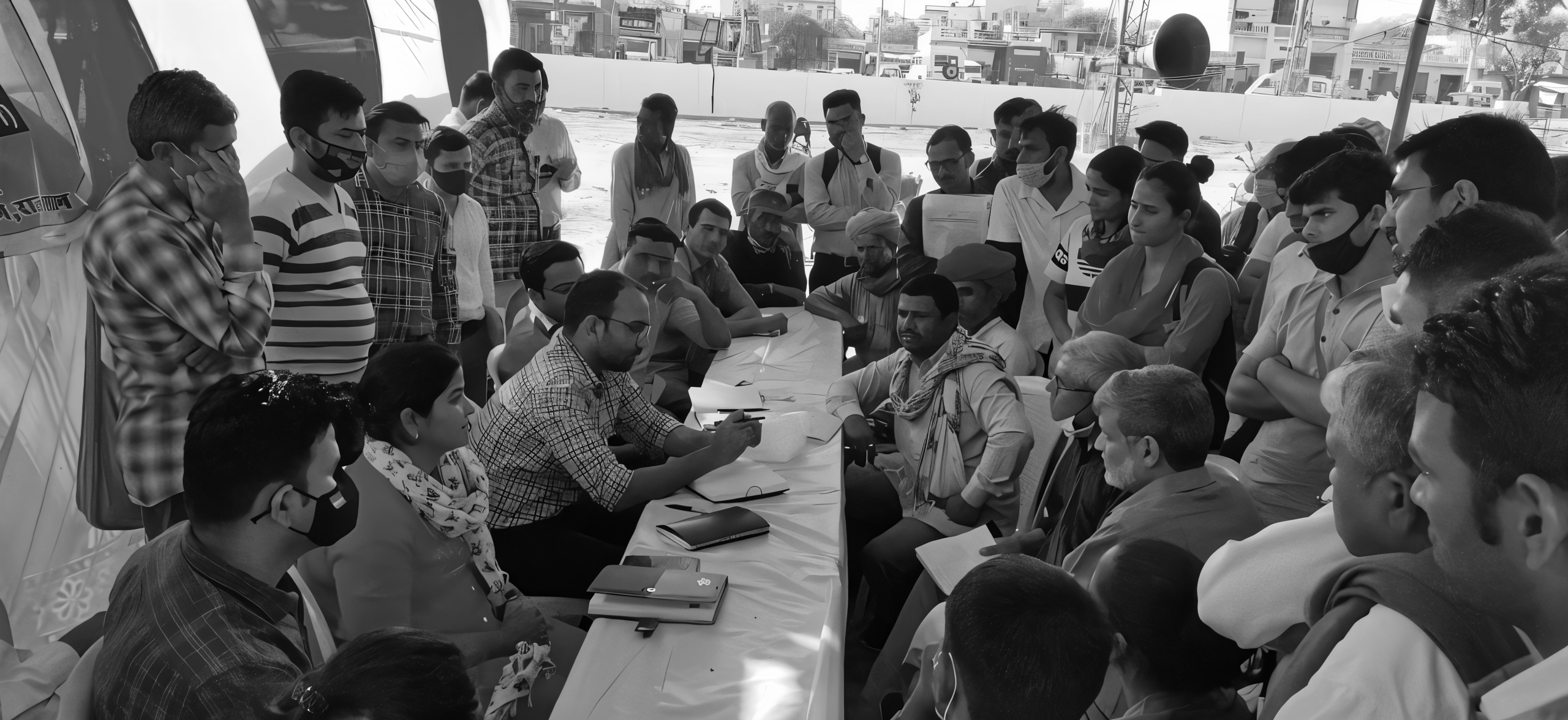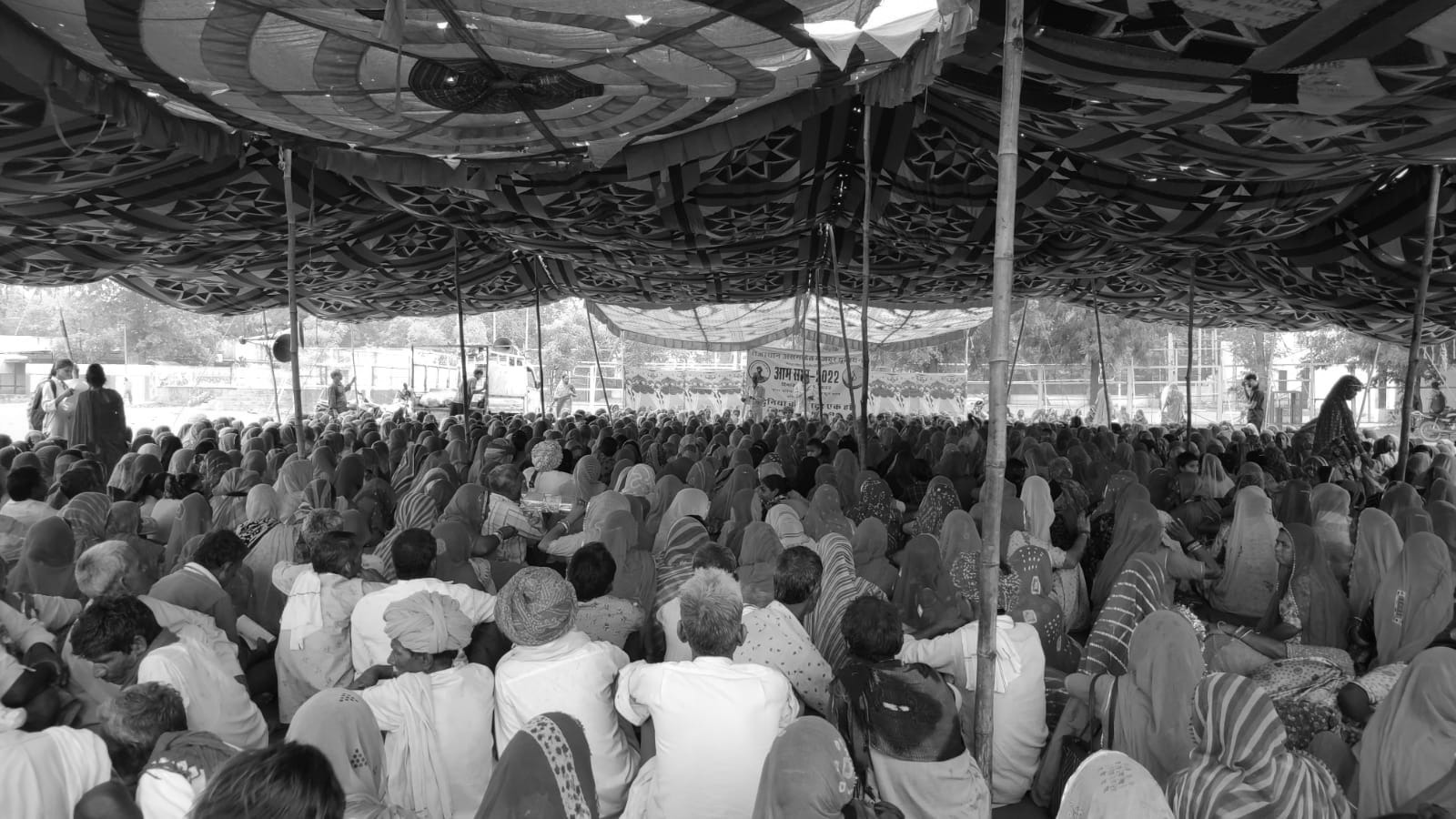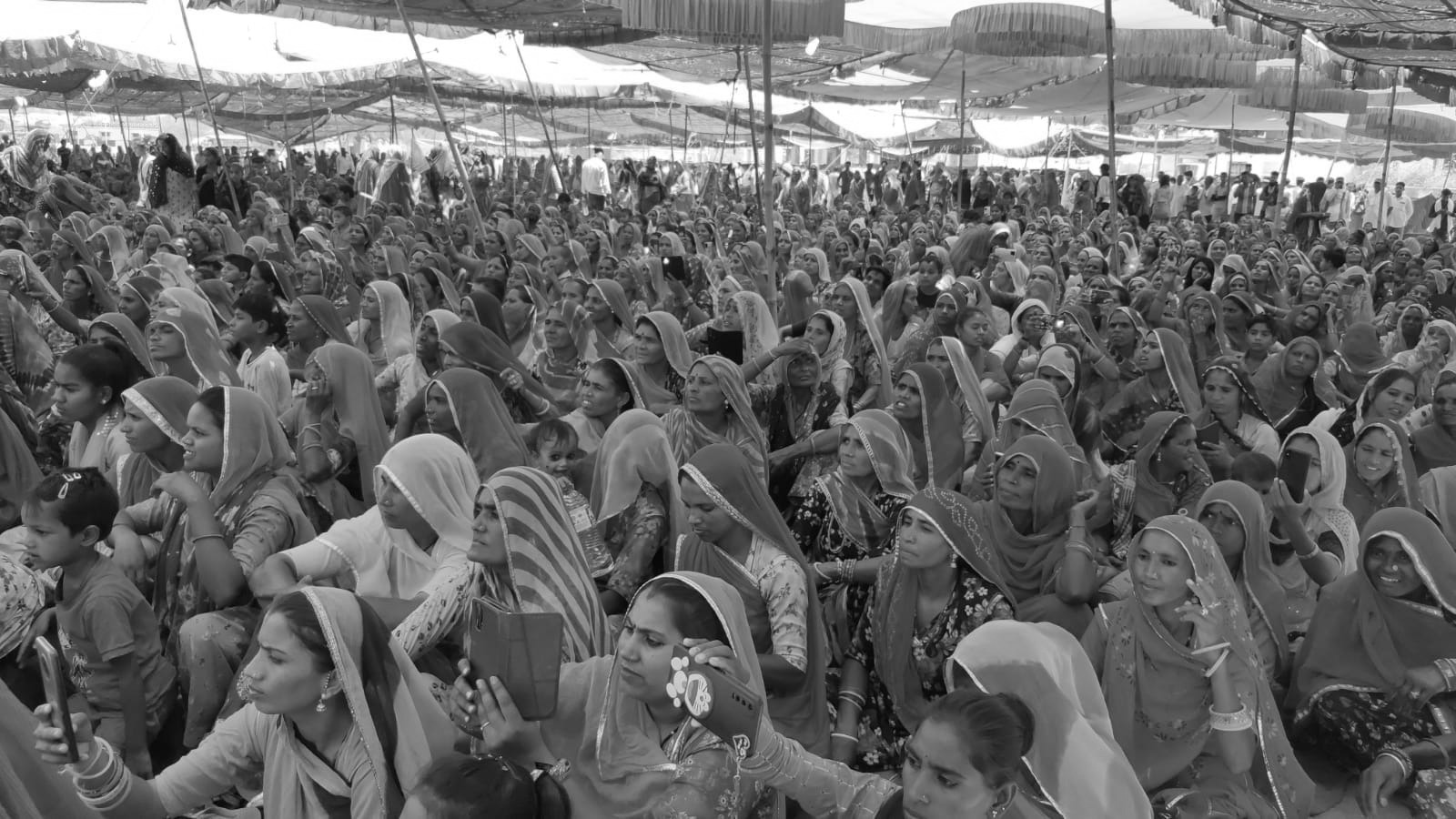
JANSUNWAI
"When the truth is spoken in front of all, lies have no place to hide. That is the strength of a Jan Sunwai"
Jansunwai, officially known as the Integrated Grievance Redressal System (IGRS), is an online portal and mobile application launched by the Uttar Pradesh (UP) government to facilitate the registration, tracking, and resolution of citizen grievances related to government services and departments. It aims to enhance transparency, accountability, and good governance through technology.
How the Idea of Jansunwai Emerged
The idea of Jansunwai (public hearing) emerged from the struggles of ordinary people who sought transparency in governance and accountability from officials. In rural areas, workers and villagers realized that government records often hid corruption, false entries, and misuse of funds. People demanded a platform where they could directly question authorities and verify how public resources were being spent. The first attempts took place in villages like Kot Kirana, where local residents gathered collectively to review expenditure records. Reading documents aloud in front of the community exposed discrepancies between what was written and what was actually delivered. This practice soon spread to places like Janawad, where larger public hearings were organized. Villagers examined muster rolls, bills, and receipts, while officials were compelled to respond openly. These grassroots experiments gave birth to a powerful democratic practice. Over time, Jansunwai evolved into a foundation for the Right to Information movement, social audits, and accountability laws.
Purpose
The primary purpose of Jansunwai is to provide a centralized and easily accessible platform for residents of Uttar Pradesh to lodge complaints, raise concerns, or seek information about government services. It was designed to reduce corruption, prevent delays, and create a faster response system. Whether the issue is related to pensions, land disputes, public services, or inefficiency in schemes, Jansunwai ensures that the voice of the citizen is heard directly and acted upon by the relevant department.
Meaning of the Term
The term “Jansunwai” translates to “public hearing” in Hindi, reflecting the system’s goal of listening to citizens openly and fairly. While traditional public hearings involved people gathering physically to present complaints in front of officials, Jansunwai has transformed this idea into a digital space. It serves as a virtual public forum where citizens can seek justice and accountability without being limited by time, distance, or bureaucracy.
Kot Kirana and the Beginning of Jansunwai
The small village of Kot Kirana in Rajasthan is remembered as one of the earliest places where the idea of Jansunwai (public hearing) was put into practice. Villagers faced a major problem of corruption in local development works and the misuse of funds meant for the poor. Government records often showed inflated expenses, false muster rolls, and incomplete projects, while ordinary people had no way to challenge them. In Kot Kirana, people came together and demanded that records be made public. They insisted on reading out official documents such as expenditure statements, muster rolls, and bills in an open meeting. When these records were compared with the actual situation on the ground, shocking discrepancies were revealed. This collective process gave villagers both courage and voice. The Kot Kirana experience became a turning point, proving that transparency and public participation could expose corruption and strengthen democratic accountability.
Janawad and the Path Towards Social Audit
Following the early experiments in villages like Kot Kirana, the practice of Jansunwai (public hearing) reached Janawad, a village that became a landmark in this journey. Here, the idea of collective questioning took a larger shape. Villagers gathered in an open space where government records—muster rolls, bills, and receipts—were read aloud. Workers stood up to confirm whether the names and wages listed in the documents matched reality. Many false entries and cases of corruption were immediately exposed. What made Janawad historic was the scale and participation. It was not just a village meeting but a democratic space where officials had to answer directly to the people. The success of Janawad inspired many more such hearings across Rajasthan and beyond. Over time, this practice laid the foundation for Social Audit, a systematic process where communities examine records, verify facts, and ensure accountability in public programs and expenditure.
From Kot Kirana to Accountability Laws
The idea of Jansunwai (public hearing) was born from people’s struggles for transparency and justice. In Kot Kirana, villagers first demanded that government expenditure records be read out in public. This simple yet powerful act revealed corruption hidden in muster rolls and bills, giving ordinary people a voice against misuse of funds. The practice grew stronger in Janawad, where larger gatherings took place. Here, villagers openly cross-checked records with reality on the ground, while officials were made to answer before the community. The Janawad experience showed how collective questioning could expose corruption and restore faith in democracy. These experiments gradually evolved into the practice of Social Audit, where communities systematically review government works to ensure fairness. Over time, such struggles also led to demands for stronger legal protections, including the Right to Hearing and Accountability Laws, ensuring that citizens’ voices are not only heard but also acted upon in governance..
Relevance to Transparency and RTI
Jansunwai is closely aligned with the objectives of the Right to Information (RTI) Act. While RTI allows citizens to request official information, Jansunwai provides a platform for proactive grievance redressal without needing to file separate applications. The transparent tracking system, feedback options, and auditing mechanisms ensure accountability from public officials. For example, a citizen facing delays in MGNREGA wages can file a Jansunwai complaint for resolution and, if unsatisfied, use RTI to access supporting documents. Together, these systems strengthen transparency, reduce corruption, and empower citizens to demand accountability from the government.
Challenges and Criticisms
Despite its strengths, Jansunwai faces several challenges. Technical glitches such as app crashes, server downtime, and syncing errors often frustrate users. Many citizens report that some complaints are marked as “resolved” without proper action being taken, raising concerns about the effectiveness of redressal. Additionally, people in rural areas with limited digital literacy or internet access struggle to file and track complaints. With the growing number of grievances, the system is sometimes overburdened, leading to delays or incomplete resolutions. These criticisms highlight the need for continuous improvement and stronger monitoring to ensure that the system achieves its goals effectively.


Benefits of Jansunwai
The biggest advantage of Jansunwai is that it is available 24/7, giving citizens continuous access to grievance redressal without needing to visit government offices. It brings transparency by tracking progress in real time and builds accountability through feedback systems. For marginalized groups such as rural workers, women, and migrant laborers, the platform is especially important because it reduces barriers of distance, time, and cost. The integration of multiple channels—portal, app, helpline—into one centralized monitoring system ensures efficiency and prevents duplication. Overall, Jansunwai empowers citizens, strengthens governance, and acts as a bridge between the government and the people.
Accessing Jansunwai
Citizens can access Jansunwai through multiple channels. The main online portals are jansunwai.up.nic.in and samadhan.gov.in, where complaints can be lodged and tracked. A mobile app is also available on the Google Play Store, making the system easier to use for smartphone users. For those without internet access, the toll-free helpline 1076 is operational around the clock, allowing people to register grievances through a simple phone call. Official documents and updates are available on the portal, and additional support is provided via email through jansunwai-up@gov.in or jansunwaiup2016@gmail.com. These multiple access points make Jansunwai inclusive and widely available.
Conclusion
Jansunwai (IGRS) represents a major step in digital governance by the Uttar Pradesh government. Launched in 2016, it enables citizens to raise complaints, track their status, and provide feedback through an integrated platform accessible via portal, app, or helpline. It promotes transparency, reduces corruption, and empowers marginalized communities to seek justice. While challenges such as technical glitches and inconsistent redressal remain, the system has made significant progress in improving governance. Jansunwai complements the RTI framework, ensuring that the government remains accountable to the people. For more details, citizens can visit jansunwai.up.nic.in or contact the Lok Shikayat Vibhag directly.